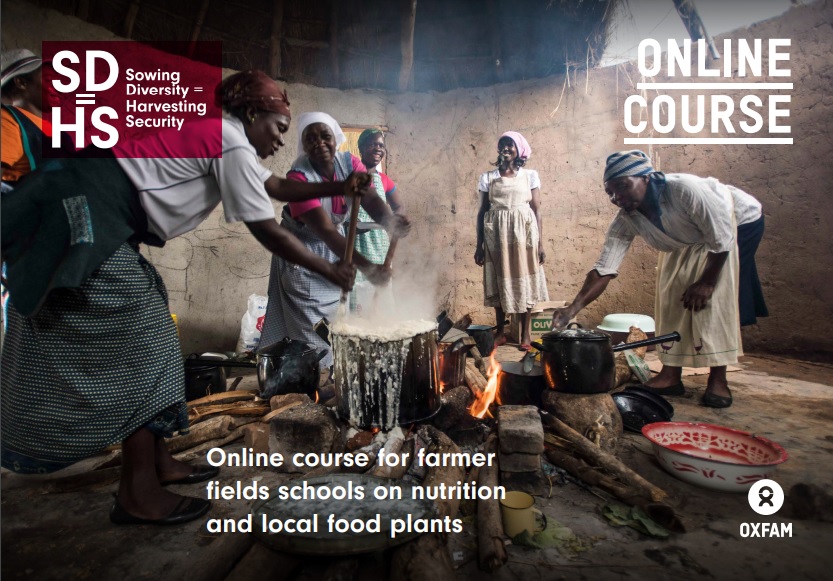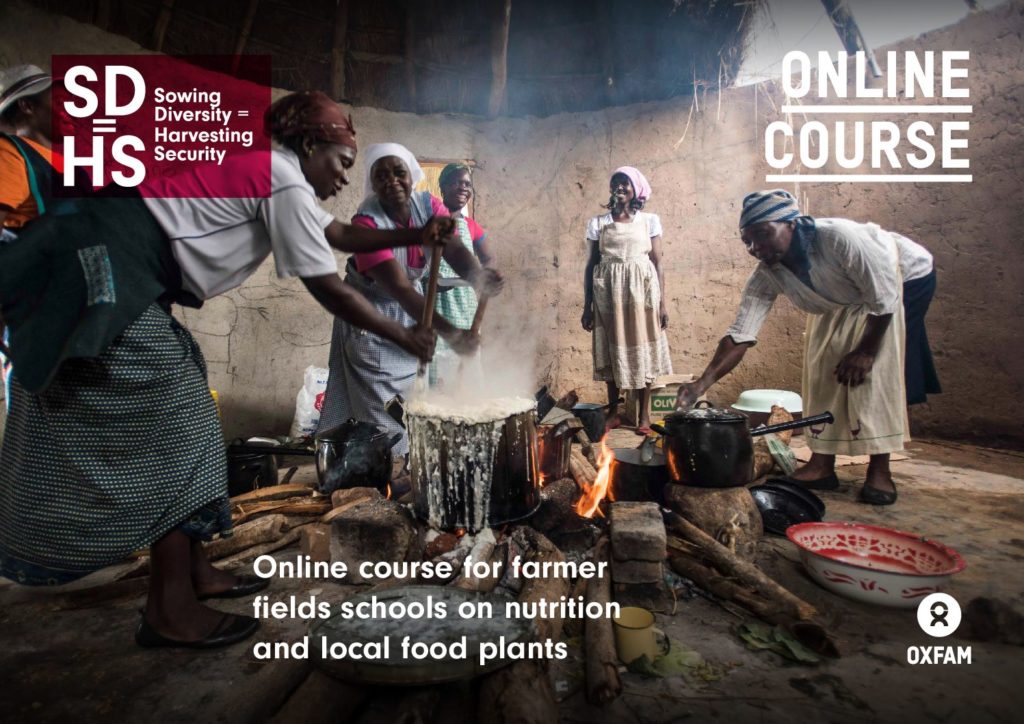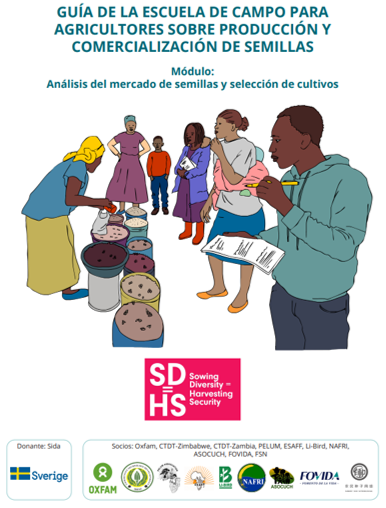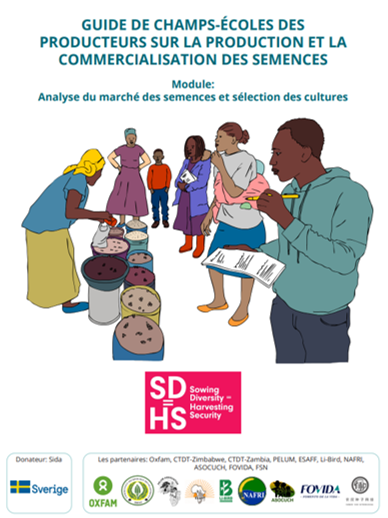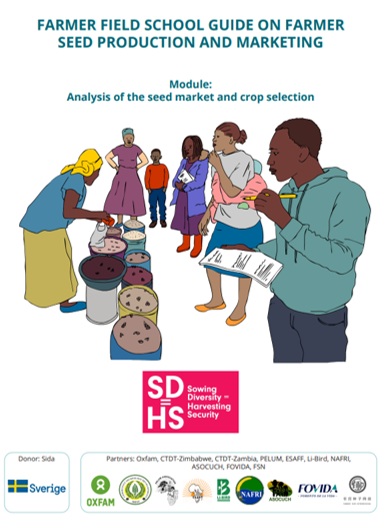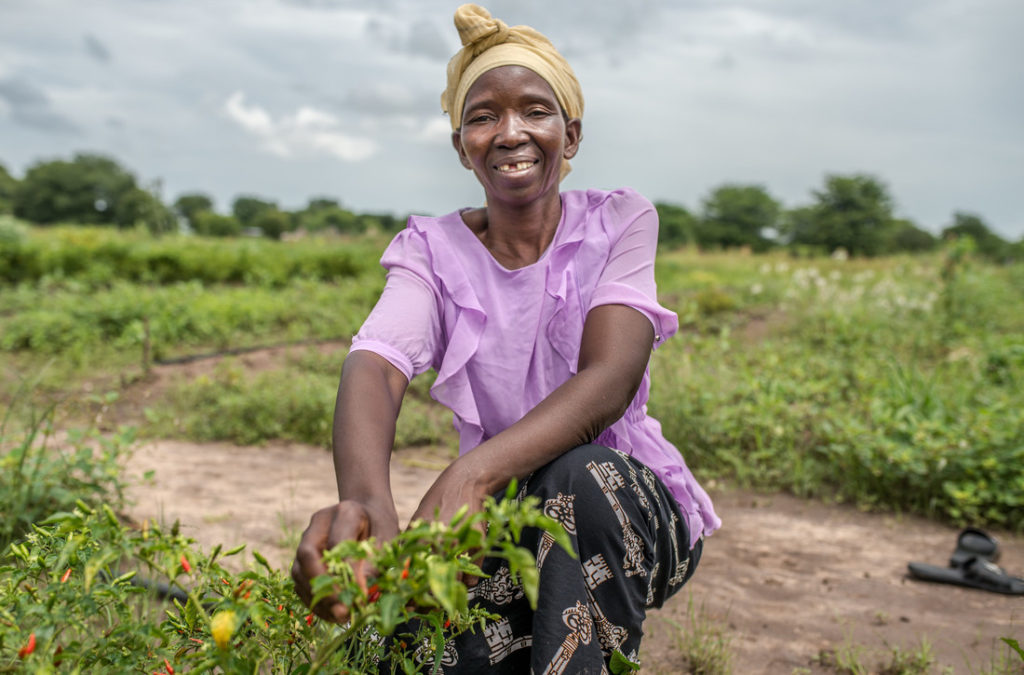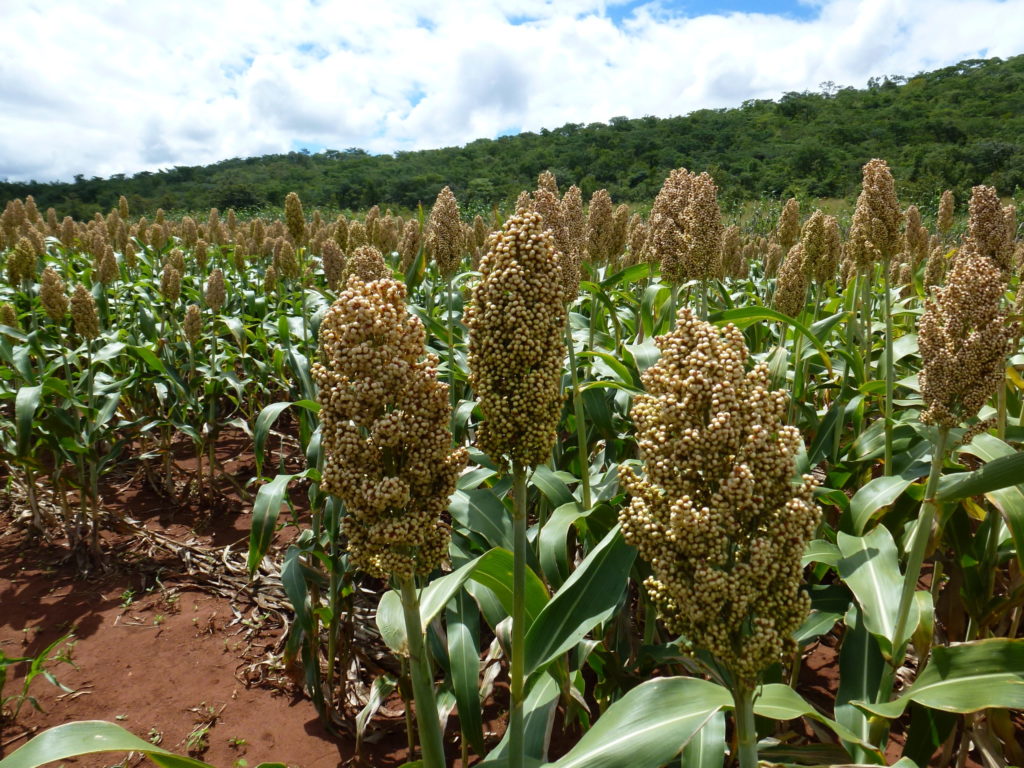Released in September 2020
4 hours and 16 minutes of video presentations
Malnutrition is a major problem faced by smallholder farmers and Indigenous peoples. Agrobiodiversity holds the key to diversify and improve the nutritional quality of their diets. This course has been organized in order to help potential master trainers in preparing and conducting the trainings of trainers (ToT) for Farmer Field Schools (FFS) on Nutrition and Local Food Plants.
This course explains the contents and delivery methodology elaborated in the FFS Field Guide on Nutrition and Local Food Plants, including the main concepts related to nutrition, local food plants and gender, the diagnostic stage, FFS activities that can be implemented to improve the management of local food plants and nutrition, planning, reporting and evaluation, and special topics. Ultimately, the FFS on Nutrition and Local Food Plants aims at contributing to the SD=HS objective on improving the quality and diversity of the diet, and reducing the length and severity of the food scarcity season by making better use of local food plants.
Target audience
Farm management advisors, rural extension service staff, local health and nutrition staff, farmer organizations, rural youth and women networks, and farmers.
Participants of the first course series organized for Asia, Latin America and Africa as part of the Sowing Diversity = Harvesting Security (SD=HS) program, included staff from the National Agricultural and Forestry Research Institute (NAFRI) in Laos; Local Initiatives for Biodiversity, Research and Development (Li Bird), and Oxfam Nepal in Nepal; the Farmers’ Seed Network (FSN) in China; Asociación de Organizaciones de los Cuchumatanes (ASOCUCH), extension agencies from the Ministry of Agriculture, Livestock, and Food (MAGA), and Secretary of Food and Nutrition Security (SESAN) in Guatemala; Eastern and Southern Africa Small Scale Farmers’ Forum (ESAFF), Participatory Ecological Land Use Management (PELUM), Community Integrated Development Initiatives (CIDI), International Institute for Rural Reconstruction (IIRR), Community Empowerment for Rural Development (CEFORD), and Oxfam Uganda in Uganda; Community Technology Development Trust (CTDT) in Zambia and Zimbabwe; and district nutritionists from the Ministry of Health and Child Care in Zimbabwe.
Content
The course is divided in 35 topics, which are distributed over six modules, and includes a series of video presentations corresponding to the different chapters of the FFS Field Guide. The study of the materials would require an investment from half a day to one full day per module.
Here is a video of the first module.

